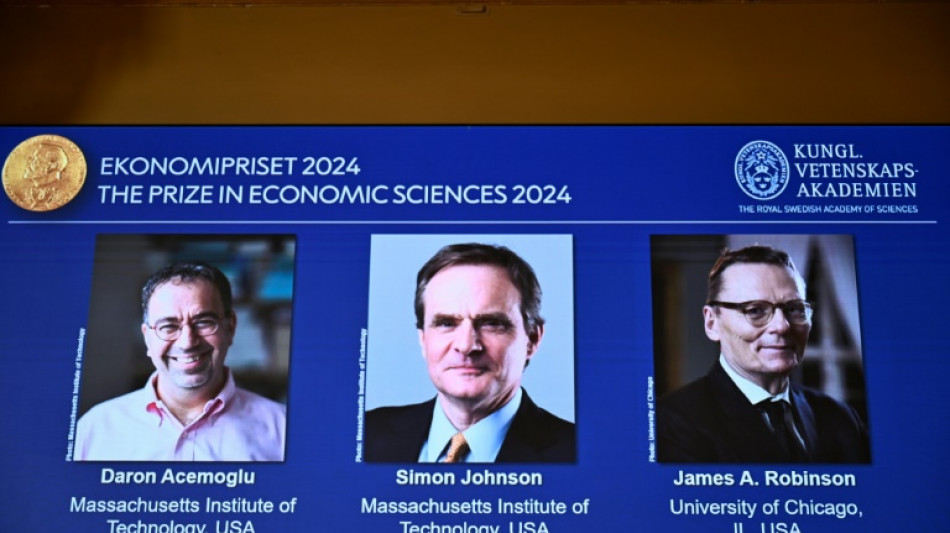
-
 Sweeping Vietnam internet law comes into force
Sweeping Vietnam internet law comes into force
-
Pope kicks off Christmas under shadow of war

-
 Catholics hold muted Christmas mass in Indonesia's Sharia stronghold
Catholics hold muted Christmas mass in Indonesia's Sharia stronghold
-
Japan's top diplomat in China to address 'challenges'

-
 Thousands attend Christmas charity dinner in Buenos Aires
Thousands attend Christmas charity dinner in Buenos Aires
-
Demand for Japanese content booms post 'Shogun'

-
 As India's Bollywood shifts, stars and snappers click
As India's Bollywood shifts, stars and snappers click
-
Mystery drones won't interfere with Santa's work: US tracker

-
 Djokovic eyes more Slam glory as Swiatek returns under doping cloud
Djokovic eyes more Slam glory as Swiatek returns under doping cloud
-
Australia's in-form Head confirmed fit for Boxing Day Test

-
 Brazilian midfielder Oscar returns to Sao Paulo
Brazilian midfielder Oscar returns to Sao Paulo
-
'Wemby' and 'Ant-Man' to make NBA Christmas debuts

-
 US agency focused on foreign disinformation shuts down
US agency focused on foreign disinformation shuts down
-
On Christmas Eve, Pope Francis launches holy Jubilee year

-
 'Like a dream': AFP photographer's return to Syria
'Like a dream': AFP photographer's return to Syria
-
Chiefs seek top seed in holiday test for playoff-bound NFL teams

-
 Panamanians protest 'public enemy' Trump's canal threat
Panamanians protest 'public enemy' Trump's canal threat
-
Cyclone death toll in Mayotte rises to 39

-
 Ecuador vice president says Noboa seeking her 'banishment'
Ecuador vice president says Noboa seeking her 'banishment'
-
Leicester boss Van Nistelrooy aware of 'bigger picture' as Liverpool await

-
 Syria authorities say armed groups have agreed to disband
Syria authorities say armed groups have agreed to disband
-
Maresca expects Man City to be in title hunt as he downplays Chelsea's chancs

-
 Man Utd boss Amorim vows to stay on course despite Rashford row
Man Utd boss Amorim vows to stay on course despite Rashford row
-
South Africa opt for all-pace attack against Pakistan

-
 Guardiola adamant Man City slump not all about Haaland
Guardiola adamant Man City slump not all about Haaland
-
Global stocks mostly higher in thin pre-Christmas trade

-
 Bethlehem marks sombre Christmas under shadow of war
Bethlehem marks sombre Christmas under shadow of war
-
NASA probe makes closest ever pass by the Sun

-
 11 killed in blast at Turkey explosives plant
11 killed in blast at Turkey explosives plant
-
Indonesia considers parole for ex-terror chiefs: official

-
 Global stocks mostly rise in thin pre-Christmas trade
Global stocks mostly rise in thin pre-Christmas trade
-
Postecoglou says Spurs 'need to reinforce' in transfer window

-
 Le Pen says days of new French govt numbered
Le Pen says days of new French govt numbered
-
Global stocks mostly rise after US tech rally

-
 Villa boss Emery set for 'very difficult' clash with Newcastle
Villa boss Emery set for 'very difficult' clash with Newcastle
-
Investors swoop in to save German flying taxi startup

-
 How Finnish youth learn to spot disinformation
How Finnish youth learn to spot disinformation
-
South Korean opposition postpones decision to impeach acting president

-
 12 killed in blast at Turkey explosives plant
12 killed in blast at Turkey explosives plant
-
Panama leaders past and present reject Trump's threat of Canal takeover

-
 Hong Kong police issue fresh bounties for activists overseas
Hong Kong police issue fresh bounties for activists overseas
-
Saving the mysterious African manatee at Cameroon hotspot

-
 India consider second spinner for Boxing Day Test
India consider second spinner for Boxing Day Test
-
London wall illuminates Covid's enduring pain at Christmas

-
 Poyet appointed manager at South Korea's Jeonbuk
Poyet appointed manager at South Korea's Jeonbuk
-
South Korea's opposition vows to impeach acting president

-
 The tsunami detection buoys safeguarding lives in Thailand
The tsunami detection buoys safeguarding lives in Thailand
-
Teen Konstas to open for Australia in Boxing Day India Test

-
 Asian stocks mostly up after US tech rally
Asian stocks mostly up after US tech rally
-
US panel could not reach consensus on US-Japan steel deal: Nippon


Trio wins economics Nobel for work on wealth inequality
The Nobel prize in economics was awarded on Monday to Turkish-American Daron Acemoglu and British-Americans Simon Johnson and James Robinson for research into wealth inequality between nations.
By examining the various political and economic systems introduced by European colonisers, the three have demonstrated a relationship between societal institutions and prosperity, the jury said.
"Reducing the vast differences in income between countries is one of our time's greatest challenges," Jakob Svensson, chair of the Committee for the Prize in Economic Sciences, said in a statement.
"The laureates have demonstrated the importance of societal institutions for achieving this," Svensson added.
Acemoglu, 57, is a professor at the Massachusetts Institute of Technology (MIT), as is Johnson, 61.
Robinson, 64, is a professor at the University of Chicago.
The jury highlighted the laureates' work in illuminating how societal institutions play a role in explaining why some countries prosper while others do not.
In a statement explaining the prize, the jury noted the example of the city of Nogales, which is divided by the US-Mexican border, where residents on the US side of the city tend to be better off.
"The decisive difference is thus not geography or culture, but institutions," the Royal Swedish Academy of Sciences said.
The US economic system provides residents north of the border greater opportunities to choose their education and profession, and they are part of the US political system, which gives them broad political rights.
By contrast, south of the border, residents live under other economic conditions, and the political system limits their potential to influence legislation.
- Democracy -
In addition, the jury noted that the laureates' research also helped explain why some countries become trapped in a situation of "low economic growth."
"The introduction of inclusive institutions would create long-term benefits for everyone, but extractive institutions provide short-term gains for the people in power," the jury said.
It said that "institutions that were created to exploit the masses are bad for long-run growth."
Conversely, it noted that "ones that establish fundamental economic freedoms and the rule of law are good for it."
Acemoglu, who was "delighted" to receive the award, told reporters that the "work that we had done favours democracy."
"Countries that democratise, starting from a non-democratic regime, do ultimately grow about eight, nine years faster than non-democratic regimes. And it's a substantial gain," Acemoglu said via telephone from Athens as the award was announced in Stockholm.
He acknowledged nonetheless that "democracy is not a panacea" and "introducing democracy is very hard."
The economics prize is the only Nobel not among the original five created in the will of Swedish scientist Alfred Nobel, who died in 1896.
It was instead created through a donation from the Swedish central bank in 1968, leading detractors to dub it "a false Nobel".
However, like for the other Nobel science prizes, the Royal Swedish Academy of Sciences decides the winner and follows the same selection process.
The economics prize wraps up this year's Nobel season, which honoured achievements in artificial intelligence for the physics and chemistry prizes, while the Peace Prize went to Japanese group Nihon Hidankyo, committed to fighting nuclear weapons.
South Korea's Han Kan won the literature prize -- the only woman laureate this year -- while the medicine prize lauded discoveries in understanding gene regulation.
The Nobel Prizes consist of a diploma, a gold medal and a $1 million reward.
They will be presented at ceremonies in Stockholm and Oslo on December 10, the anniversary of the 1896 death of scientist and prize creator Alfred Nobel.
P.Mathewson--AMWN


